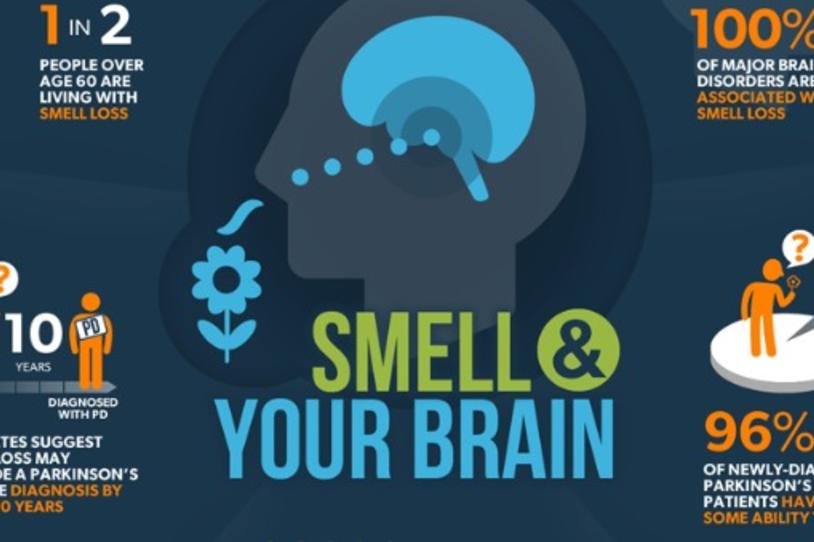
The work of the Parkinson’s Progression Markers Initiative (PPMI) to recruit individuals who may be at risk for Parkinson’s disease (PD) was profiled by the UK-based Financial Times last week. PPMI—a landmark biomarkers study sponsored by The Michael J. Fox Foundation—is looking for people age 60 or older without Parkinson’s to take a smell survey.
Read the article below to learn more about the connection between smell loss and PD, and take the smell survey here.
Study uses sense of smell to help fight Parkinson’s
By Andrew Jack in London
Distinguishing the smells of root beer, pumpkin pie and gasoline sound like the ingredients for an American citizenship test, but they are now studied in the UK as potentially life-saving skills to tackle Parkinson’s disease.
British researchers have started a search for pensioners who are losing their sense of smell, as part of a groundbreaking charity-backed effort to identify early signs of the debilitating medical condition.
Doctors at Imperial College London are beginning to recruit “ambassadors” as they seek volunteers for the UK arm of an unusual trial to better understand and ultimately treat or prevent Parkinson’s—which affects 1 in 100 people aged over 60—using a symptom long known to be associated with the neurodegenerative illness: hyposmia or loss of smell.
The work is funded by the New York-based Michael J. Fox Foundation, created by the American actor who himself has Parkinson’s, which has been at the forefront of innovative approaches to tackling the condition for which there is currently neither a cure nor any simple reliable “biomarker” to diagnose it such as a blood or urine test.
Dr. Todd Sherer, the Foundation’s chief executive, said: “Across all studies in Parkinson’s disease, the recruitment of patients is a systemic roadblock that slow the trials, makes them more expensive and delays getting to outcomes.”
Dr. Nicola Pavese at Imperial College, who is working on the Fox-funded Parkinson Progression Markers Initiative project, said he was handing out leaflets to all his patients and had recently recruited two “ambassadors” among them to help find 200 volunteers over the coming months. “This is a fantastic study,” he said. “One of the problems with Parkinson’s disease is the lack of biomarkers.”
Most people aged over 40 begin to lose their sense of smell, but past studies have shown 50-90 percent of those with Parkinson’s have a reduced or absent “olfactory function.” One theory is the nose allows exposure by the brain to toxins.
Past smell tests have proved cumbersome and expensive but the Fox-funded research uses a series of simple “scratch and sniff” tests for common smells in a series of booklets recently developed at the University of Pennsylvania. Candidates should be aged over 60 and have a genetic predisposition such as a relative with the disease. They then receive a brain scan.
Dr. Sherer said there could be some cultural problems in applying in the UK and elsewhere the US-developed smell test, which also asks participants to identify skunk, rose and dill pickle. “In the Middle East, they don’t recognise some flowers and foods from the US,” he said.
Smokers are also less sensitive to smell tests, although ironically some studies have shown a lower rate of Parkinson’s in tobacco users.
